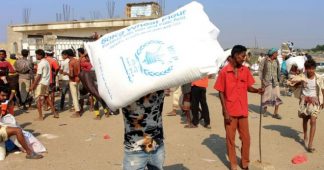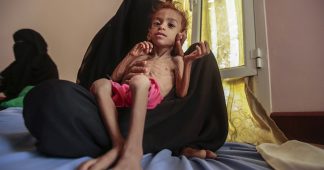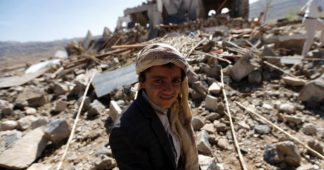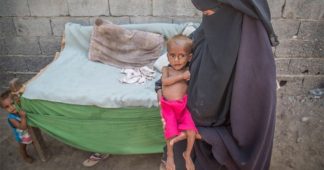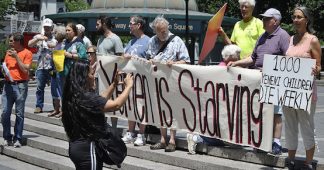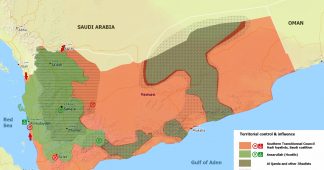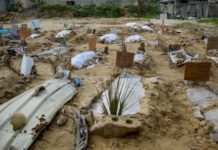By Daniel Larison
November 24, 2020
photo: Creative Commons/Felton Davis
The U.N. Secretary-General warned last week that Yemen faces the worst famine in decades:
Yemen is in imminent danger of the worst famine in decades. Without immediate action, millions of lives may be lost.
I urge all those with influence to act urgently & request that everyone avoids taking actions that could make a dire situation worse. https://t.co/eRF1TbveV7
— António Guterres (@antonioguterres) November 20, 2020
Like most modern famines, the famine in Yemen is entirely man-made. It is the result of the Saudi coalition’s military intervention and economic war against the country. The U.S. has been supporting the Saudi coalition in these policies for more than five and a half years. Yemen suffers from the world’s worst humanitarian crisis because of the predictable and predicted consequences of waging a senseless war in this country, and the U.S. shares culpability for the enormous harm done to innocent civilians from the Saudi coalition’s bombing and blockade. The humanitarian crisis has worsened this year as international donations have dried up and the Trump administration has suspended aid funding to the part of Yemen where most of the people live in a destructive bid to pressure the Houthis.
As I noted last week, the administration is considering a terrorist designation for the Houthis that will cause even more harm to a population that is already struggling with widespread starvation and disease. A bipartisan group of senators has warned against issuing the designation because of the devastating effects that it would have on the people of Yemen. Sens. Murphy, Young, and Coons released this statement yesterday:
“We are concerned about the adverse consequences of designating the entire Houthi movement in Yemen as a Foreign Terrorist Organization. We have reason to believe that this designation would further destabilize the country, which is already the home of Al Qaeda in the Arabian Peninsula, make it harder to negotiate a peace agreement, and stop the important work of the many NGOs providing lifesaving assistance in the country. This designation would almost certainly prevent the critical delivery of food, medical supplies, and other items necessary to combat both COVID-19 and famine. Yemen remains the world’s worst humanitarian disaster, one that on occasion has been exacerbated by ill-advised policies in recent years. Creating new, additional obstacles to the delivery of food and medical aid — during a global pandemic — is not in the best interest of the United States, our regional allies and partners, or the people of Yemen.”
Peter Salisbury issued a similar warning, and he pointed out the familiar danger of overcompliance by financial institutions and companies:
If you're an international bank, or shipping firm, or insurance firm, you'll have a choice: make a small return on doing business in Yemen and risk being sanctioned/fined in the US — or de-risk and get out of the Yemen game. It's not hard to guess what firms will do.
[5/8]— Peter Salisbury (@peterjsalisbury) November 20, 2020
The designation announcement is expected to come in December. More members of Congress need to speak out against making this disastrous decision, which will push countless innocent Yemenis into the abyss of starvation. The Post reports:
“If this is rushed through, we might see trade and financial flows dry up across Yemen, the diplomatic process blown up and the Houthis deciding they need to repay the favor by increasing the tempo of attacks into Saudi Arabia while turning to Iran for more support,” said Peter Salisbury, senior analyst for Yemen at the International Crisis Group.
As we know from other pressure campaigns, the humanitarian exemptions rarely work as they are supposed to. Even if aid groups can obtain the necessary permission, the process will be cumbersome, expensive, and time-consuming. It will inevitably impede the delivery of aid if it does not completely stop it, and that guarantees more Yemenis will die from starvation and disease when their lives could have been preserved. Strangling an economy that is already badly damaged by war and pandemic is completely unjustified collective punishment against tens of millions of people. If the administration does this, their scorched earth tactics will be responsible for a huge number of preventable deaths. It seemed impossible that the Trump administration could make their evil Yemen policy any worse, but they are determined to try.
Published at www.theamericanconservative.com
